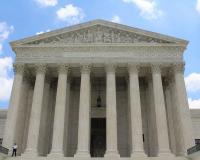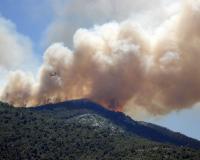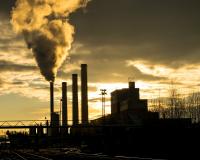
Vibrant Environment
Climate Change And Sustainability
All | Biodiversity | Climate Change and Sustainability | Environmental Justice | Governance and Rule of Law | Land Use and Natural Resources | Oceans and Coasts | Pollution Control

50-year celebrations typically feature nostalgic reminiscings about a great run, as with golden wedding anniversaries, or a gauzy look back at a humble beginning for a now-mature organization.
The Environmental Law Institute’s 50th year celebration is different.

Judges rely on precedential case law and legal interpretation in issuing their decisions, but with an increasing number of court cases relying on scientific evidence, judges must also understand the science to ensure a sound judicial process. Accurately deciding such cases not only determines the case at hand, but could set the precedent for similar cases in the future.

In the last two weeks, Indonesian islands Sumatra and Borneo began experiencing severe forest fires, evoking fears within the region that the fires could have similar effects to the fires of 2015, which was one of the worst years for transboundary haze in Southeast Asia. Following the 2015 fires, Indonesia took steps to limit the burning and draining of peatland to reduce the outbreak of fires in addition to improving environmental sustainability and air quality in the region. However, due to a combination of governance challenges and climate change-intensifying dry seasons, the country has struggled to keep up with implementing fire mitigating activities in all fire-prone areas.

Fifty years ago, on June 22, 1969, the Cuyahoga River of Ohio burst into flame. Although it was not the first time an oil slick burned on the heavily polluted river, the event is often credited as one of the key environmental crises that galvanized the American public to recognize that pollution and other environmental damage were not just local problems, but required national attention.

Just last month, Illinois became the first state to legalize the sale and use of marijuana through its legislature. Including Illinois, 11 states have now legalized marijuana for recreational use, resulting in fast-paced growth of the cannabis industry across the United States. However, as with most new industries, the increased consumption of cannabis products has brought on new sustainability challenges.

The “fairness” of free trade agreements is front and center in today’s often rancorous political dialogue—but rarely is the environment a top-tier consideration in the debate. In a timely article, Vanderbilt University Law School Prof. Timothy Meyer offers a valuable environmental perspective on trade agreements that deserves attention. Professor Meyer offers empirical evidence that selective enforcement of environmental laws is “considerably more pervasive than commonly thought.” The result, he contends, is that trade agreements can undermine environmental interests in the energy and fisheries sectors, the most traded commodity and the most traded food respectively.

In recent months, the long-standing environmental justice (EJ) movement—which began with the civil rights movement—has gained new momentum. EJ refers to the “fair treatment and meaningful involvement of all people regardless of race, color, national origin, or income with respect to the development, implementation, and enforcement of environmental laws, regulations, and policies.” As natural disasters ravage minority, low-income communities, global climate justice campaigns demand equitable solutions, and members of Congress underscore the importance of ensuring environmental protection for our most vulnerable communities, EJ principles are given a leading role in the conversation about environmental policy.

Lasting repercussions of the 2018 fire season have continued to vex California’s electric utility sector, the state government, and communities across the state that are recovering from previous fires and bracing for the next wave of wildfires.
PG&E, the bankrupt private electric utility whose aging infrastructure has been linked to 19 major wildfires in 2017 and 2018, has faced withering coverage in the press, intense scrutiny by state officials, and public questioning in federal court. Earlier this month, the Wall Street Journal reported that PG&E has repeatedly delayed updates to its transmission lines and towers, many of which are still in operation well beyond their life expectancy.

Much of the media concerning climate change have direly emphasized that its most horrendous effects will be borne by some of the world’s most impoverished developing cities, with coastal settlements on the front lines of this siege. Yet, most of these headline-grabbing pieces rarely explore the true complexity of these issues beyond mere sea-level rise and a few other similarly visible or tangible environmental problems. This blog aims to briefly outline the deeper extent of crises threatening these cities by further examining an experience of one particular city. A city where the ravages of global warming are more than just dire warnings—but a clear and present burden on its overwhelmingly underprivileged citizens every day. A city that offers perhaps one of the most holistic case studies to examine the entangled causality between environmental and social issues wrought by climate change. My hometown, Karachi, Pakistan.

Throughout the month of July, ELI is taking a closer look at “Environmental Justice & Vulnerable Communities” as we continue to offer special events, programs, and publications in commemoration of our 50th Anniversary. As part of this month-long introspection into our work in environmental justice, Research Associate Lovinia Reynolds and Research and Publications Intern Anthony D’Souza reached out to Barry E. Hill, ELI Visiting Scholar and Adjunct Law Professor at Vermont Law School. Prior to coming to ELI, Professor Hill was the Senior Counsel for Environmental Governance at EPA’s Office of International and Tribal Affairs. From 1998 to 2007, he was Director of EPA’s Office of Environmental Justice. Below are Professor Hill’s thoughts and perspectives, as an environmental justice advocate, on environmental justice in the United States.